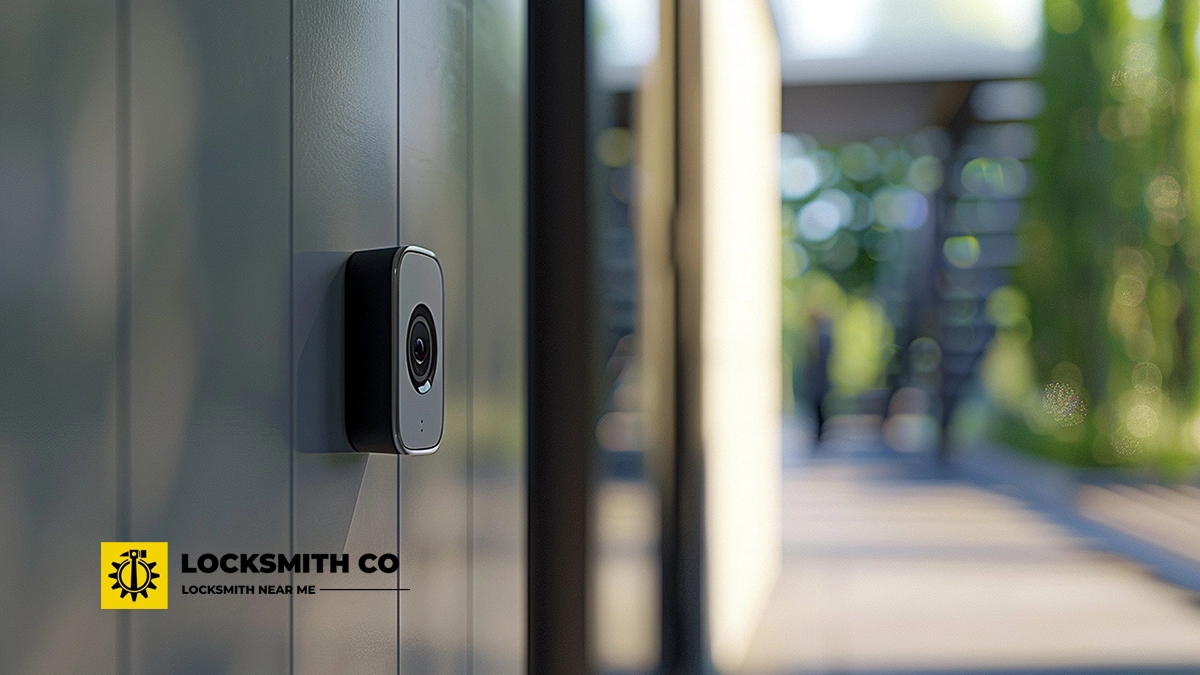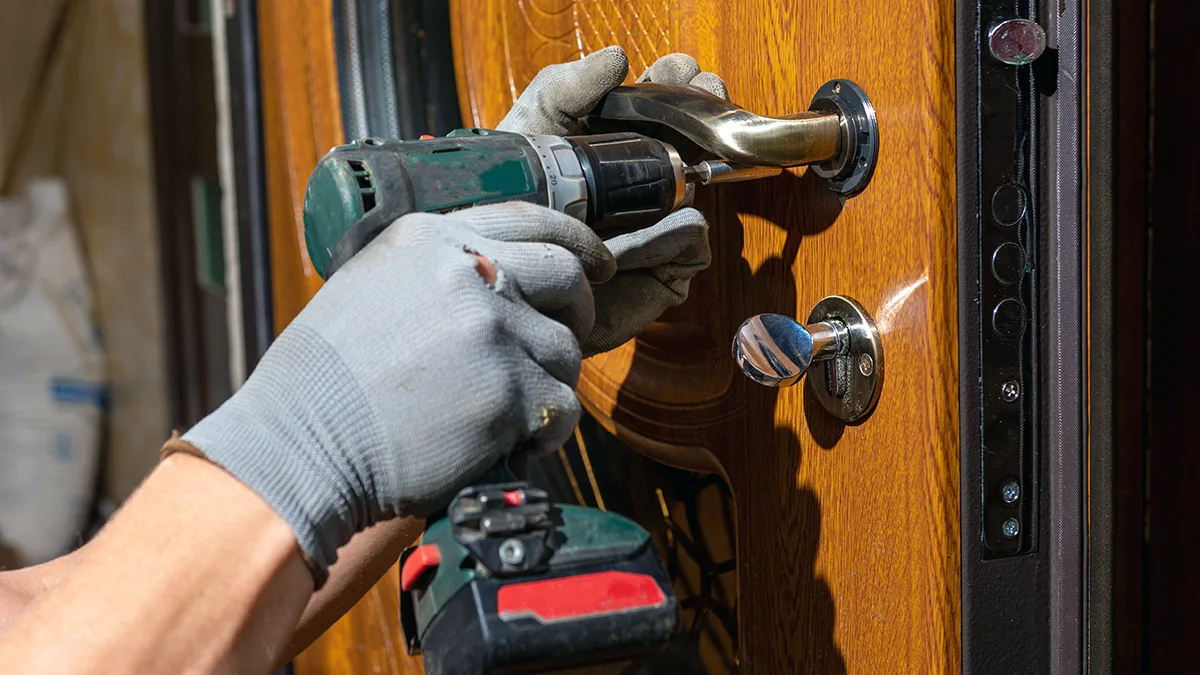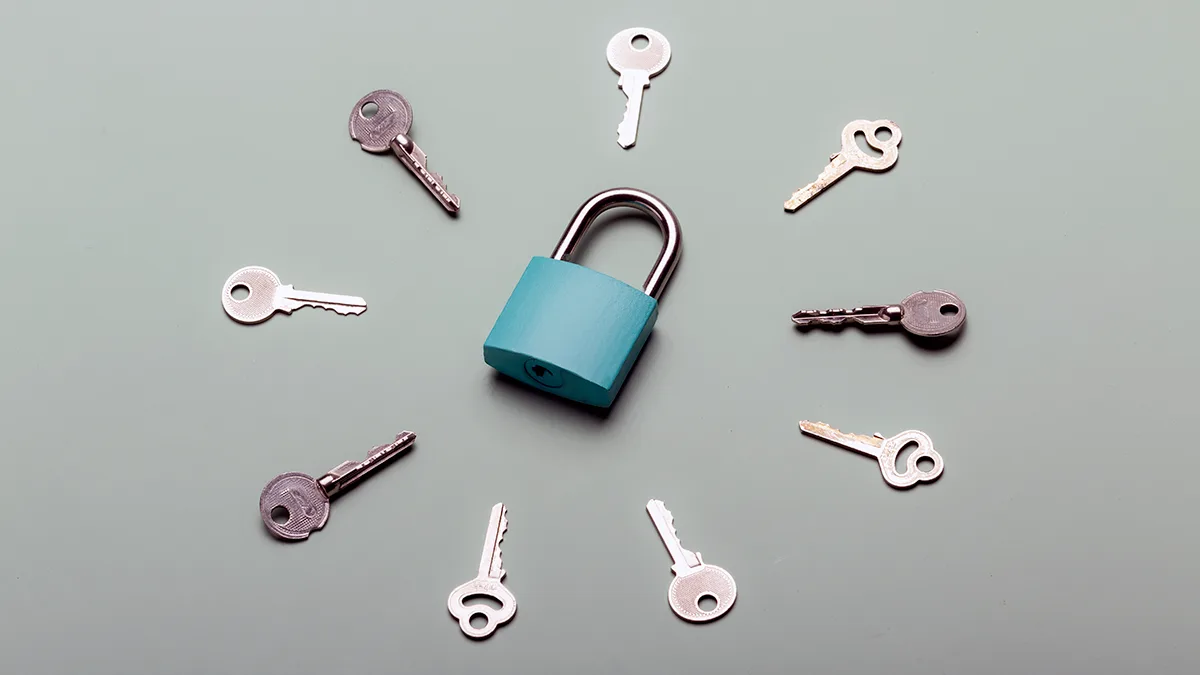Security Checklist for Your London Business Premises. In today's rapidly evolving landscape, ensuring the security of…
Mastering Door Lock Security: Tips for Maximum Protection
Mastering door lock security: Understanding the intricacies of door lock security is an essential aspect of safeguarding your home or business premises.
As a trusted provider of locksmith services in London, we aim to educate homeowners, renters, and anyone with an interest in securing their property.
Mastering door lock security
In this guide, we will delve into the key mechanisms behind how household locks work, explore the various types of locks available, and offer valuable lock maintenance tips to ensure maximum protection.
With our professional insights, you can feel confident that you’re making informed decisions to enhance your property’s security.
Whether you’re seeking to upgrade your current locks or require expert advice, our team is here to provide reliable and trustworthy service.
Understanding Door Lock Security
How Household Locks Work
To grasp the basics of door lock security, it’s crucial to understand how household locks work.
Most common locks operate using a pin and tumbler mechanism.
When you insert the correct key, the key’s ridges push the pins inside the lock to align perfectly, allowing the lock to turn and the door to open.
This alignment is key to unlocking the mechanism. Conversely, an incorrect key will fail to align the pins, keeping the lock engaged.
Another popular type is the deadbolt lock, which provides additional security.
Unlike spring bolt locks, deadbolts cannot be retracted without rotating the lock cylinder with the correct key.
This makes forced entry significantly more difficult, enhancing your property’s security.
Understanding these key mechanisms can help you make informed decisions when choosing locks for your home or business.
Key Mechanisms Explained
Lock mechanisms vary, yet they all serve the fundamental purpose of securing access.
The pin and tumbler lock, prevalent in many homes, is a classic example. It comprises a series of pins that must align precisely to allow the lock to turn.
This mechanism is highly dependent on the key’s specific ridges.
Another common mechanism is the wafer tumbler lock, often found in cabinets and cars. It uses wafers instead of pins, which also require specific alignment.
This type offers a simpler design, making it easier to manufacture and often more cost-effective.
For higher security, electronic locks use digital keypads or biometric systems.
These mechanisms rely on electronic signals to disengage the lock, offering a more sophisticated layer of security.
Understanding these key mechanisms is vital for selecting the right lock to meet your security needs, whether for home or commercial use.
Types of Locks for Maximum Protection
Common Residential Lock Types
When considering door lock security for your home, it’s important to explore various types of locks available.
One of the most popular is the deadbolt lock, known for its robustness. Deadbolts come in single and double cylinder forms.
Single cylinder deadbolts use a key on one side, while double cylinders require a key for both sides, offering enhanced security.
Another common type is the lever handle lock, often used for interior doors.
These locks are user-friendly and provide a balance of security and convenience.
For entry doors, knob locks are frequently employed. Though easy to use, they are best accompanied by a deadbolt for increased protection, as they can be easily compromised on their own.
Lastly, smart locks are gaining traction, allowing control through smartphones or keypads.
They offer convenience with features like remote access, making them an attractive choice for tech-savvy homeowners.
Advanced Security Lock Options
For those seeking enhanced door lock security, advanced options offer superior protection.
Smart locks, for instance, have transformed how we secure homes.
These locks allow remote control via smartphones or keypads, and can integrate with home automation systems for added convenience.
Some models offer biometric access, using fingerprints to unlock doors, providing a personalised level of security.
High-security locks, such as those with drill-resistant cylinders and hardened steel bolts, are designed to withstand forced entry attempts.
They often feature complex keyways that make picking significantly more challenging.
Another option is the keyless entry system, popular in commercial settings.
These systems use codes or swipe cards, reducing the risk of unauthorised key duplication.
For maximum protection, consider electromagnetic locks. While typically used in commercial properties, they offer formidable security by using magnets to keep doors securely closed, and require a power source to release.
Essential Lock Maintenance Tips
Regular Inspection and Cleaning
Regular inspection and cleaning of your locks are crucial for maintaining optimal door lock security.
Over time, dust and debris can accumulate within the lock mechanism, potentially causing it to jam or function improperly.
To prevent this, inspect your locks periodically for any signs of wear or damage.
Check for smooth operation; any stiffness or resistance could indicate a problem needing attention.
Cleaning involves using a dry cloth to remove surface dirt and a gentle lubricant, such as graphite spray, to keep the internal components moving smoothly.
Avoid using oil-based lubricants, as they can attract more dust and grime.
During inspection, ensure that screws and fixings are secure, and that the door aligns properly with the frame.
Misalignment can cause unnecessary strain on the lock, leading to premature failure.
By maintaining a routine of regular inspection and cleaning, you can extend the life of your locks and ensure they continue to provide reliable security.
When to Call a Locksmith
Knowing when to call a locksmith is key to maintaining effective door lock security.
While some maintenance can be handled personally, certain situations require professional intervention.
If you experience difficulty turning the key or notice any unusual grinding sounds, it might indicate internal wear or damage that needs expert attention.
In cases of lost keys or suspected unauthorised access, a locksmith can provide rekeying services or recommend lock upgrades.
Similarly, if a lock becomes excessively loose or shows signs of forced entry, immediate professional assistance is advised to ensure your property’s security isn’t compromised.
New lock installation, especially for advanced security systems, can benefit from a locksmith’s expertise to ensure correct fitting and operation.
Regular professional inspections can also be part of a proactive maintenance programme, identifying potential issues before they become significant problems.
Trusting a locksmith ensures that locks are maintained properly and continue to provide reliable protection.




Comments (0)